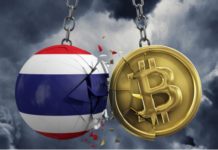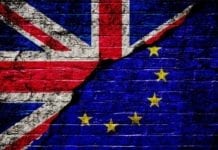–
British journalist and public intellectual Douglas Murray says in his new book, The Strange Death of Europe, that Europe is well on its way to civilizational suicide.
Extracts;
‘Europe is committing suicide. Or at least its leaders have decided to commit suicide. Whether the European people choose to go along with this is, naturally, another matter.
When I say that Europe is in the process of killing itself, I do not mean that the burden of European Commission regulation has become overbearing or that the European Convention on Human Rights has not done enough to satisfy the demands of a particular community.
I mean that the civilisation we know as Europe is in the process of committing suicide and that neither Britain nor any other western European country can avoid that fate, because we all appear to suffer from the same symptoms and maladies.
As a result, by the end of the lifespans of most people currently alive, Europe will not be Europe and the peoples of Europe will have lost the only place in the world we had to call home.
Europe today has little desire to reproduce itself, fight for itself or even take its own side in an argument. Those in power seem persuaded that it would not matter if the people and culture of Europe were lost to the world.’
Murray says that the causes for this are many, but he singles out two massive events that happened simultaneously: the world decided to migrate to Europe at the same time that Europeans lost faith in themselves and their civilization. More:
‘While generally agreeing that it is possible for an individual to absorb a particular culture (given the right degree of enthusiasm both from the individual and the culture) whatever their skin colour, we know that we Europeans cannot become whatever we like.
We cannot become Indian or Chinese, for instance. And yet we are expected to believe that anyone in the world can move to Europe and become European.
If being “European” is not about race, then it is even more imperative that it is about “values”. This is what makes the question “What are European values?” so important. Yet this is another debate about which we are wholly confused.
Are we, for instance, Christian? In the 2000s this debate had a focal point in the row over the wording of the new EU constitution and the absence of any mention of the continent’s Christian heritage. The debate not only divided Europe geographically and politically, it also pointed to a glaring aspiration.
For religion had not only retreated in western Europe. In its wake there arose a desire to demonstrate that in the 21st century Europe had a self-supporting structure of rights, laws and institutions that could exist even without the source that had arguably given them life.
In the place of religion came the ever-inflating language of “human rights” (itself a concept of Christian origin). We left unresolved the question of whether or not our acquired rights were reliant on beliefs that the continent had ceased to hold, or whether they existed of their own accord.
This was, at the very least, an extremely big question to have left unresolved while vast new populations were being expected to “integrate”.
And:
Even now Europe’s leaders talk of an invigorated effort to incorporate the millions of new arrivals. These efforts too will fail. If Europe is going to become a home for the world, it must search for a definition of itself that is wide enough to encompass the world.
This means that in the period before this aspiration collapses our values become so wide as to become meaninglessly shallow.
Also;
New World Order and the Last Man in London – Life after the fall of the Western Empire – Albert Jack
The fall of the Western Empire and what happens next
How three world wars were predicted as far back as 1871
So whereas European identity in the past could be attributed to highly specific, not to mention philosophically and historically deep foundations (the rule of law, the ethics derived from the continent’s history and philosophy), today the ethics and beliefs of Europe — indeed the identity and ideology of Europe — have become about “respect”, “tolerance” and (most self-abnegating of all) “diversity”.
Such shallow self-definitions may get us through a few more years, but they have no chance at all of being able to call on the deeper loyalties that societies must be able to reach if they are going to survive for long.
This is just one reason why it is likely that our European culture, which has lasted all these centuries and shared with the world such heights of human achievement, will not survive.’
Read the whole thing. Murray’s book The Strange Death of Europe will be published in the UK this week;









































